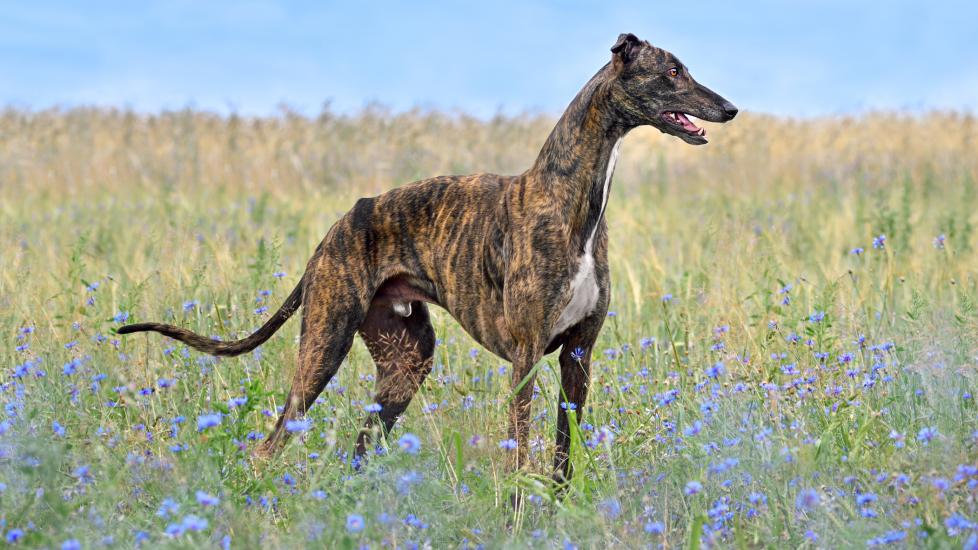Fungal Infection (Aspergillosis) in Dogs
eAlisa/iStock / Getty Images Plus via Getty Images
What Are Fungal Infections in Dogs?
Fungal infections in dogs—specifically those caused by the fungus Aspergillus—are opportunistic organisms that are found everywhere in the environment, though they are more associated with compost piles, decaying soil, and standing water.
Fungal infections in dogs are painful, can be itchy, and are extremely frustrating. Many symptoms of fungal infections are vague and can often be mistaken for other conditions.
Though uncommon, fungal infections are considered a medical emergency. Unfortunately, by the time symptoms are noted for some dogs, the disease is already so advanced that humane euthanasia may be recommended.
Types of Fungal Infections in Dogs
Nasal aspergillosis is caused by fungi shedding spores called conidia. These spores can be inhaled and cause a localized infection that appears as thick, smelly pus coming from the nose.
Another type of this fungus—if not cleared by the immune system through making mucus or sneezing—can infect the respiratory system, get into the bloodstream, and spread throughout the body affecting multiple organs. This is called disseminated aspergillosis.
Symptoms of Fungal Infections in Dogs
Dogs with the disseminated form of aspergillosis are often terminally ill and can’t be cured. Dogs with the disseminated form often show symptoms related to which organs the fungus has attacked.
Dogs may have:
-
Muscle wasting and weight loss
-
Spinal pain
-
Lameness
-
Lack of coordination and balance (ataxia)
-
Draining tracts: open sores in the skin that leak fluid
Dog with nasal aspergillosis can also have neurologic signs such as seizures, behavioral changes, and head pressing. However, they more often show the following:
-
Greenish-yellow-red (bloody) nasal discharge from one or both nostrils
-
Tears in the skin of the nostrils with loss of skin color
-
Facial muscle wasting
-
Facial and nasal pain, shown by pawing at the nose
Causes of Fungal Infections in Dogs
Dogs of any age, sex, or breed can become infected by Aspergillus.
However, young or middle-aged dolichocephalic (long-nosed) breeds such as Greyhounds, Collies, and Dachshunds are more often affected by nasal aspergillosis, as well as German Shepherds and Rottweilers.
Female German Shepherds from 2 to 8 years of age are most often diagnosed with disseminated aspergillosis.
How Veterinarians Diagnose Fungal Infections in Dogs
A physical exam of the nose and face—looking for signs of pain, symmetry, and air flow from both nostrils—will be a first step toward diagnosis of a fungal infection in dogs. Bloodwork and urine testing may then be recommended, as fungal organisms have been found in urine.
Imaging is often recommended, including:
-
X-rays of the spine looking for evidence of bone destruction
-
CT scans and skull X-rays to look for evidence of nasal and sinus bone destruction
-
Rhinoscopy to directly visualize fungal growths in the sinus cavities
Biopsies, serology, fungal PCR, and fungal cultures of samples taken are more specialized tests, but they are often needed for a sure diagnosis.
Treatment of Fungal Infections in Dogs
Aspergillosis in dogs is slow to clear up. Antifungal medications often need to be given for months or years, and side effects of the drugs are common.
These medications include:
-
Amphotericin B
-
Posaconazole
Supportive care —such as pain medications, secondary antibiotics, and intravenous (IV) fluids—is often used while treating the underlying cause.
Recent studies have shown that dogs diagnosed with nasal aspergillosis saw an 80% success rate in curability with clotrimazole infusions and surgical removal of as much fungus and aspergilloma as possible.
However, nasal aspergillosis infection is often never 100% cleared, even with treatment.
Because dogs with disseminated aspergillosis are often very sick, many will either be humanely euthanized or die from the disease before medical treatment has a chance to work.
Recovery and Management of Fungal Infections in Dogs
The outlook for dogs with nasal aspergillosis is uncertain and depends on the severity and amount of bone destruction. Dogs with neurologic symptoms are most likely to have a brain infection.
Dogs with disseminated fungal infections have a poorer outlook, because they are often very sick at the time the veterinarian sees them. However, some studies have mentioned average survival times of greater than a year.
Dogs infected with nasal fungal infections often see their nasal discharge and symptoms clear up around two weeks after treatment. However, some persistent nasal discharge and sneezing may still happen because of the damage caused. Some dogs may need another procedure if the first doesn’t fully work.
Follow-up CT scans and rhinoscopy are needed to see if full healing takes place.
Some infections may not be cleared up until years after therapy, so recurrence is possible. However, once cleared of infection, dogs are unlikely to become infected again.
Prevention of Fungal Infections in Dogs
Unfortunately, most fungal infections in dogs cannot be prevented, but as Aspergillus fungi often are more prevalent in decaying soils and compost, the best thing you can do is not allow your pup access to these areas.
Additionally, since Aspergillus is opportunistic in nature, dogs that are immunocompromised are at greatest risk. Take extra precautions when your dog is around other dogs, outside for a walk, pregnant, or receiving steroids or chemotherapy.
Fungal Infection (Aspergillosis) in Dogs FAQs
How do I know if my dog has a fungal or bacterial infection?
Given that symptoms are often similar, most of the time you won't be able to tell if your dog has a fungal or bacterial infection. Dogs can even have both types of infections at once. Diagnostic tests like cultures and cytologies are often needed to differentiate between the two.
References
Lim Y, et al. A retrospective multi-center study of treatment, outcome, and prognostic factors in 34 dogs with disseminated aspergillosis in Australia. Journal of Veterinary Internal Medicine. 2022;36(2):580–590.
Bennett P, et al. Long term survival of a dog with disseminated Aspergillus deflectus infection without definitive treatment. Medical Mycology Case Reports. 2018;22:1–3.
